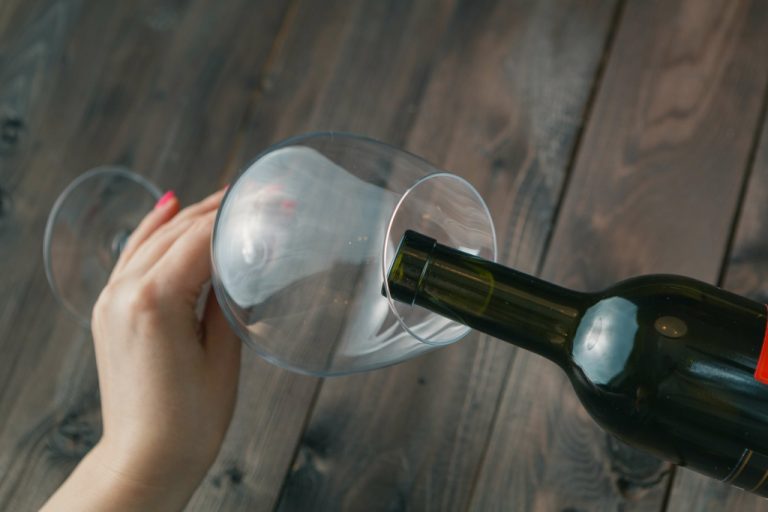Rehabilitation programs are an excellent treatment option for people with severe symptoms of the condition. They remove you from your triggers and focus on helping you heal for the period you are in them. You are likely to engage in several forms of therapy, from individual to group therapy. Reviva, Vivitrol Campral, are relatively new drugs that help reduce alcohol cravings, and can also help reduce some people’s desire to consume alcohol. Vivitrol and Revia can help people drink less alcohol even if they don’t want to stop drinking entirely. Many times people find these medications help them to quit drinking for good.
Clinicians call such a behavioral disorder a disease because it persists for years, is strongly hereditary, and is a major cause of death and disability. In addition, alcohol permanently alters the brain’s plasticity with regard to free choice over beginning or stopping drinking episodes. As with other medical diseases but unlike most bad habits, prospective studies demonstrate that willpower per se is of little predictive significance. Alcoholism is a complex, many-sided phenomenon, and its many formal definitions vary according to the point of view of the definer.
The good news is that treating both alcohol misuse and depression can make both conditions better. Based on clinical experience, many health providers believe that support from friends and family members is important in overcoming alcohol problems. But friends and family may feel unsure about how best to provide the support needed. The groups for family and friends listed below may be a good starting point. When seeking professional help, it is important that you feel respected and understood and that you have a feeling of trust that this person, group, or organization can help you. Remember, though, that relationships with doctors, therapists, and other health professionals can take time to develop.
Fatal alcohol-related injuries tend to occur in relatively younger age groups. To learn more about alcohol treatment options and search for quality care near you, please visit the NIAAA Alcohol Treatment Navigator. Alcohol treatment professionals work with you to create a personalized comprehensive recovery plan with measurable goals. Comprehensive recovery plans may include inpatient or outpatient treatment, medication-assisted therapy, counseling and support groups. Call now to connect with a treatment provider and start your recovery journey. Starting college or a new job can also make you more susceptible to alcoholism.
The general period of alcohol use begins in the late teens, then peaks in the 20s and finally slows down in the early 30s. Drinking from an early age can cause long-term problems that can even go into your 40s and 50s. Alcohol is a psychoactive substance with dependence-producing properties that has been widely used in many cultures for centuries. The harmful use of alcohol causes https://trading-market.org/alcoholic-narcissist-how-the-two-conditions-are/ a high burden of disease and has significant social and economic consequences. Alcoholics Anonymous is available almost everywhere and provides a place to openly and non-judgmentally discuss alcohol problems with others who have alcohol use disorder. The sooner you recognize there may be a problem and talk to your healthcare provider, the better your recovery chances.

Thus, growing up in a family of alcoholics can become a psychological cause of alcoholism. Many theories of the causes of alcoholism rest on the limited perspectives of specialists in particular disciplines or professions. More discerning theories take into account the complexity of the disorder and acknowledge that alcoholism is usually caused by a combination of factors. Alcoholics Anonymous is a decades-old treatment, but one that research shows is effective. A recent review found that Alcoholics Anonymous led to higher rates of abstinence from alcohol long term compared to other treatments. One of the key reasons, according to the data, is that people continue to participate for years after they have completed the 12-step program.
The more environmental and social support for a person’s drinking means they are more likely to drink, and that will more likely be one of the causes of alcoholism and addiction. Alcoholism is a deadly disease with millions of people struggling with addiction all around the world. There are many possible causes of alcoholism and excessive drinking, although, there will likely be only a couple of main reasons for alcohol dependence. It is always easier to prevent a problem than to deal with consequences. One recent analysis found a sobering relationship between alcohol and health.
Kids in high school and college feel the need to be “cool,” accepted and like they’re in on the fun. Heavy drinking has long been considered an acceptable practice among teens and young adults ages 18 to 34, and keeping that drinking going past this age is a factor in what causes alcoholism. Finding a healthier way to manage your stress 6 Unbelievably British Easter Traditions is key to avoiding dependence. The earlier you start to drink, the more likely you are to develop a dependence on alcohol, especially if you’re under 15 years old. Sana Lake Recovery Center is a Joint Commission Accredited addiction treatment program. Learn more about the financial impact of alcohol misuse in the United States.
Research shows a high correlation between alcohol misuse and high-risk sexual behavior, violence, crime, self-injury, and fatal injury from things like motor vehicle accidents. People with AUD represent about 20–35 percent of completed suicides. Addiction develops, alcohol tolerance sets in and, eventually, coping with everyday stress seems impossible without a drink or two which can also lead to alcoholism. Being genetically predisposed to alcohol addiction also does not mean that the genes make alcoholism untreatable.

Behavioral therapies can help people develop skills to avoid and overcome triggers, such as stress, that might lead to drinking. Medications also can help deter drinking during times when individuals may be at greater risk of a return to drinking (e.g., divorce, death of a family member). It’s also called alcohol dependence, alcohol addiction or alcohol abuse.
OR CALL OUR OFFICE (812) 378-5595